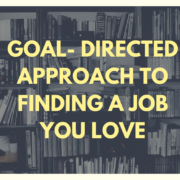Types of Job Search Techniques
What types of job search techniques have typically helped you get jobs in the past? Did you apply to a job posting? Did you find out about your job through a friend?
The job search techniques that used to work may need tweaking in 2020 and beyond, especially due to the coronavirus pandemic. The economy has contracted and it’s also shifting in unprecedented ways that are new and uncertain to both employers and business owners.
What does this mean for you? Let’s start with a clear understanding of the types of job search techniques that exist and examine the research and statistics behind their effectiveness.
Types of Job Search Strategies
- Online Job Postings.
This is an obvious approach – you browse through various job postings on websites such as Indeed.com or you set up automatic searches that email you job postings based on your search terms. It truly is the path of least resistance or so it seems.
You then send off your cover letter and resume, and then you wait and see what happens. It doesn’t allow for much learning or feedback and it can easily lead to discouragement and frustration when you don’t hear back from the employer.
Ah, but did you know, a recent statistic suggests that out of all the people who apply for these postings through such websites like Indeed – only less that 1% of people will actually get a job offer? (Jobvite’s 2019 Recruiting Report).
Furthermore, Richard Bolles, a career guidance expert, estimates that on average, applying to a job posting online has about a 4% success rate, and if you are applying to IT, health-care, engineering or financial jobs, then possibly up to 10% success rate.
According to Glassdoor, each job opening might receive about 250 resumes or applications and only 4 to 6 will receive an interview. Of course, there is only one lucky winner! This could be you!
When you do find an online job posting, one of the most effective strategies is to identify who the hiring manager is and try to submit your resume directly to them. A recent statistic suggests that you have about a 19% chance of getting a job this way (Jobvite’s 2019 Recruiting Report).
The same research study indicated that only about 0.14% of career seekers attempt to use this strategy. Perhaps this is because it takes a lot more preparation, organization, practice, and possibly courage to use this approach.
- Employment Agencies
Employment agencies are also known as recruiters, staffing firms or temp agencies. They have relationships with various companies where you want to work. Employment agencies will do the advertising, screening and interviewing of candidates, as well as the hiring.
They prefer to hire people who already have the necessary experience and skills for the required position.
The hiring process is labour intensive and costly and so many employers prefer to hire employment agencies to do this hard work for them.
Richard Bolles estimates that on average, using a recruiter is helpful between 5-28% of the time. He also states that using an employment agency is 4 times more powerful than just relying on sending your resume out.
- Social Media Connections
This job search technique involves strategically positioning yourself on social media websites where recruiters and other hiring managers might be able to find you. LinkedIn is one great example of a social media website where recruiters are constantly looking for talent.
LinkedIn allows you to upload and insert your work history, experiences, skills, references / testimonials, and more. It’s a great way to build an online brand. It also gives employers a chance to see your photo and to learn so much more about you compared to if you just applied to a standard job posting.
Did you know that the number of recruiters using LinkedIn is about 20% less when compared from 2019 and 2018? Now, Instagram and Facebook are becoming frequently used, especially by younger recruiters specialized in information technology.
Statistics suggest that in 2018 alone, the number of recruiters who used these latter websites doubled compared to the year before (Jobvite)
- Informational Interviews
Information interviews have also been referred to as conversational interviews. A more comprehensive description can be found here, however, in a nutshell this job search strategy involves you seeking out people in various roles or organizations in which you hope to learn more about their career paths.
It usually involves sending an email, introducing yourself, and requesting a 20-30 minute meeting for you to ask questions about their them or their role.
Randall Hansen, a career educator, estimates that 1 out of every 200 resume applications will get a person a job offer, whereas with informational interviews, he estimates that 1 in 12 will receive a job offer.
- Goal-Informed Strategy
This job search strategy involves you making a list of specific goals for where you would like to work. It involves you identifying clear targets of people, companies, and industries that you plan to reach out to for the purpose of inquiring how you might be able to contribute some of your skills and experience.
This approach differs from an information interview because you are looking for a job. Except, you will frame your want in terms of what is in it for the employer. Here is one example of such a script.
You are in control of setting your goals and deciding which companies you will contact. It’s a very hands-on, dynamic, and constructive approach where you get to exercise more control over your career goals compared to some of the previous job search techniques where you wait and see what happens.
This approach gives you permission to go directly after your career dreams. It’s all about you communicating what you can contribute and how you can add value. It’s a very active and direct way of letting others know what you have to offer.
You might worry about not wanting to bother other people, but did you know that recruiters spent about 30% of their week seeking out the best candidates for just one position (Recruiting Trends report from Entelo, 2018)? Employers want and need your talent. If you’re attracted to them, there’s a good chance they might just be interested in you too.
- Showing Up and Knocking On Doors
Straightforward or terrifying?
Depends on who you ask, but simply showing up at an employer’s office may be another great way to get re-employed, and it is estimated to work about 47% of the time particularly with smaller employers.
Of course, you need to use your judgment – what is the likelihood you could speak to the hiring manager directly? How will you handle the delicate nature of taking up some of their time unannounced? What will you say?
- Personal Network Connections
This approach involves you talking to people about your job search, but in very strategic ways. It’s also referred to as networking, but most people cringe when they hear that word.
You talk to people you know and you also seek out connections with other professionals that you don’t know. You might attend networking events or ask for referrals to other individuals.
Most people already have a map of social connections that they can draw on, and you must be well prepared for this approach to work well for you.
LinkedIn and Dell Technologies published a report suggesting that about 85% of all jobs that will be available in 2030 don’t yet exist (LinkedIn). The key takeaway is that many jobs are currently being created every single day. With new jobs being created so fast, employers often fill such positions before they get the chance to advertise.
Employers don’t necessarily even recognize their changing needs all the time. This is an opportunity for you however, to sell your skills, and to try to create and design a job for yourself based on the needs of the employer.
Talking to your personal connections, and finding out who they know, is one of the best ways to find meaningful work. It’s one of the best ways to learn about what is happening in the marketplace.
Simply asking people in your network if they are aware of opportunities can be helpful. Richard Bolles estimates this approach is successful approximately 33% of the time. When you ask people you know for leads you are 5 times more likely to land a job compared to just relying on submitting your resume.
Also, did you know that when you are referred to an organization through someone you know, you may be hired up to 55% quicker compared to those who applied online? (Jobvite Index).
This is an overview of the key types of job search techniques available to you. Which ones do you think you’ll use? Be sure to read my post on how to manage informational interview anxiety.
Author: Dr. Allison Foskett, Registered Counselling Psychologist, Edmonton, Alberta
To learn more about my background and training as a registered psychologist, please visit my About Me page
If you’re interested in exploring career counselling services, career assessments, or individual therapy for a range of mental health concerns, please contact me for a free 15-minute phone consultation.










